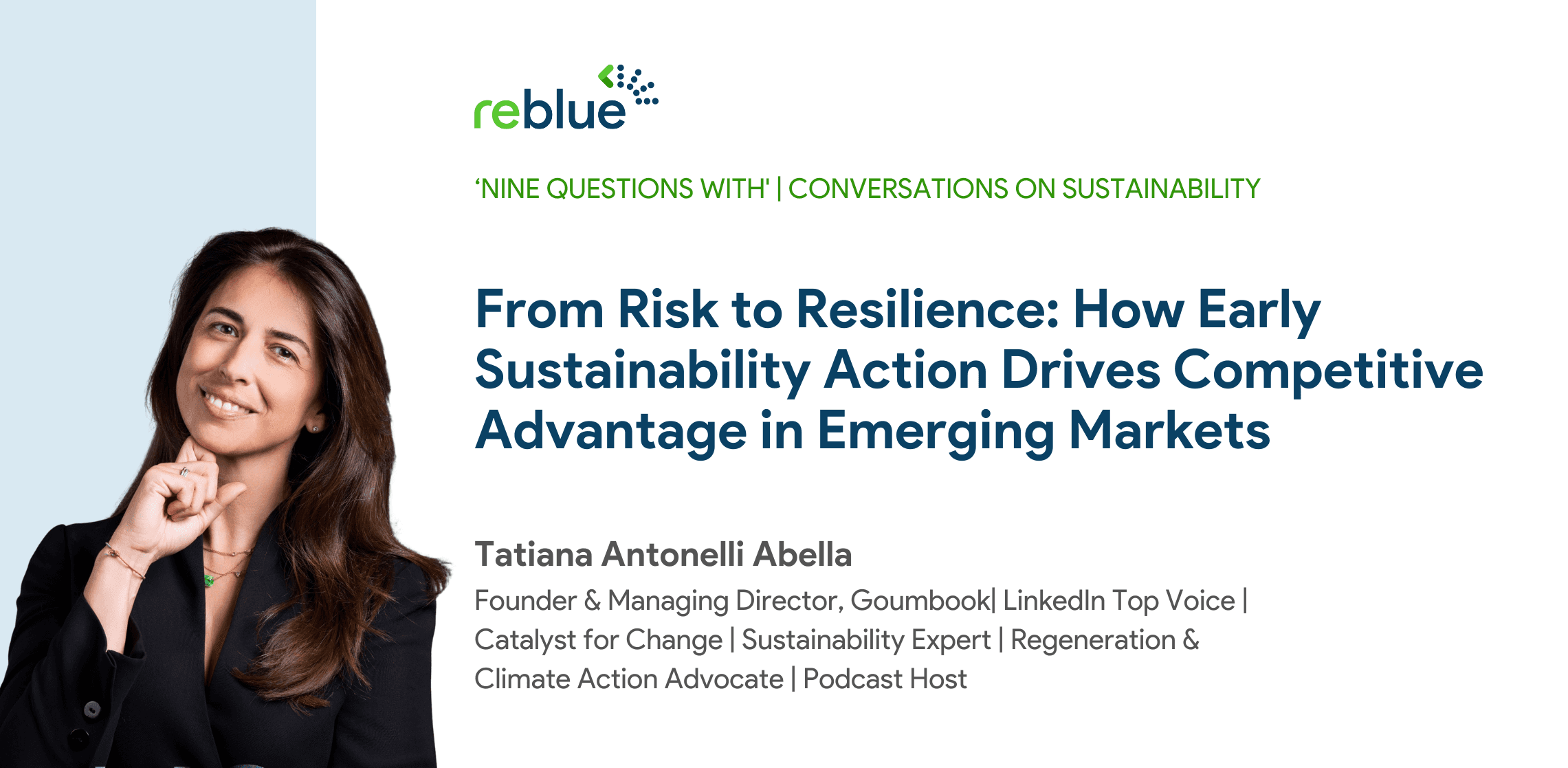Back to Blog
Share Post:



Balancing Profit and Planet: AI-Driven Strategies for Sustainable Growth
The integration of artificial intelligence with corporate sustainability initiatives presents a transformative opportunity for businesses to simultaneously drive profitability and environmental impact, as demonstrated by market leaders achieving significant cost savings and competitive advantages. This strategic analysis provides C-suite executives and sustainability professionals with a practical framework for leveraging AI to turn environmental stewardship into measurable business value, backed by real-world success stories and actionable implementation strategies.
When Microsoft committed $1 billion to their Climate Innovation Fund in 2020, it wasn't just an environmental gesture - it was a strategic imperative driven by data. Today, as corporations navigate increasing regulatory pressures, investor scrutiny, and market demands for sustainable practices, leading organizations are discovering a powerful catalyst for transformation: the intersection of artificial intelligence and sustainability operations. While environmental initiatives were once viewed primarily through the lens of compliance and cost, market leaders like Unilever, Google, and Microsoft are leveraging AI to turn sustainability into a competitive advantage that delivers measurable returns. The convergence of these forces presents an unprecedented opportunity for business transformation - one that forward-thinking executives can't afford to ignore.
The Business Imperative of Sustainable Operations
The convergence of artificial intelligence and sustainability presents unprecedented opportunities for business transformation. While environmental stewardship has traditionally been viewed as a cost center, market leaders are demonstrating that sustainability initiatives can drive substantial business value when powered by intelligent technologies.
Consider Unilever's Sustainable Living Brands, which have achieved 69% faster growth compared to their conventional product lines. This success illustrates a crucial insight: when sustainability transcends compliance to become a core business strategy, it creates measurable competitive advantages.
AI as a Catalyst for Sustainable Transformation
The challenge of implementing effective sustainability initiatives has historically been complicated by data complexity and manual processes. Artificial intelligence is changing this paradigm by enabling organizations to:
Process Complex Environmental Data: Converting vast amounts of sustainability metrics into actionable insights
Identify Efficiency Opportunities: Detecting patterns and anomalies that humans might miss
Enable Predictive Decision-Making: Forecasting environmental impacts before they occur
Google's data center optimization serves as a compelling example. By implementing AI-driven cooling systems, they reduced energy consumption by 40% — demonstrating how intelligent technologies can simultaneously advance environmental and financial objectives.
The Economic Case for Sustainable Operations
The World Economic Forum projects that nature-positive policies could generate $10.1 trillion in business opportunities by 2030. This isn't merely theoretical potential; companies are already realizing significant returns from their sustainability investments:
Microsoft: Taking bold action with their carbon negative pledge by 2030
Walmart: Saving over $1 billion annually through energy efficiency initiatives
Tesla: Transforming the automotive industry while achieving remarkable market capitalization
Key Components of AI-Enhanced Sustainability Strategies
1. Data Infrastructure Development
Implement comprehensive data collection across operations
Establish standardized sustainability metrics
Ensure data quality and consistency
2. Strategic Goal Setting
Align sustainability targets with business objectives
Create measurable, time-bound environmental goals
Develop clear accountability frameworks
3. Continuous Monitoring Systems
Deploy real-time performance tracking
Establish feedback loops for constant improvement
Enable dynamic strategy adjustment
4. Benchmarking and Analysis Tools
Organizations are increasingly leveraging AI-powered platforms to enhance their sustainability initiatives. For example, platforms like SustainSwift offer peer group benchmarking and multiple sustainability indicators, while larger enterprise solutions from Microsoft and IBM focus on comprehensive environmental monitoring. These tools can help organizations:
Compare performance against industry peers
Track progress across sustainability metrics
Access AI-assisted guidance for sustainability initiatives
Generate insights for board-level reporting
Measuring Success: A Framework for Evaluation
Organizations should assess their sustainability initiatives across multiple dimensions:

Future Outlook
As sustainability becomes increasingly central to business success, organizations must evolve from reactive compliance to proactive leadership. The integration of AI in sustainability initiatives represents a fundamental shift in how businesses can approach environmental stewardship while driving growth.
Former Unilever CEO Paul Polman's observation that achieving sustainability goals represents "the biggest business opportunity in the history of mankind" appears increasingly prescient. The question for executives is no longer whether to invest in sustainable operations, but how to leverage technology effectively to maximize both environmental and financial returns.
Looking Ahead
The next frontier in sustainable business operations will likely involve:
Integration of blockchain for supply chain transparency
Advanced materials science driven by AI
Circular economy business models
Enhanced stakeholder collaboration platforms
Organizations that successfully combine technological innovation with sustainability principles will be best positioned to thrive in an increasingly environmentally conscious market.
Conclusion:
The business case for AI-driven sustainability is no longer theoretical - it's being proven in boardrooms and balance sheets across the globe. Organizations that successfully integrate these technologies are seeing enhanced operational efficiency, reduced compliance risks, and strengthened market positioning. As regulatory requirements tighten and stakeholder expectations evolve, the competitive advantage will increasingly go to companies that can harness AI to drive both environmental and financial performance. For C-suite leaders, the strategic imperative is clear: those who treat sustainability as a core business driver, powered by intelligent technologies, will be best positioned to thrive in an economy where environmental stewardship and market leadership are inextricably linked. The window for gaining first-mover advantage in this space is closing - the time for decisive action is now.

Balancing Profit and Planet: AI-Driven Strategies for Sustainable Growth
The integration of artificial intelligence with corporate sustainability initiatives presents a transformative opportunity for businesses to simultaneously drive profitability and environmental impact, as demonstrated by market leaders achieving significant cost savings and competitive advantages. This strategic analysis provides C-suite executives and sustainability professionals with a practical framework for leveraging AI to turn environmental stewardship into measurable business value, backed by real-world success stories and actionable implementation strategies.
When Microsoft committed $1 billion to their Climate Innovation Fund in 2020, it wasn't just an environmental gesture - it was a strategic imperative driven by data. Today, as corporations navigate increasing regulatory pressures, investor scrutiny, and market demands for sustainable practices, leading organizations are discovering a powerful catalyst for transformation: the intersection of artificial intelligence and sustainability operations. While environmental initiatives were once viewed primarily through the lens of compliance and cost, market leaders like Unilever, Google, and Microsoft are leveraging AI to turn sustainability into a competitive advantage that delivers measurable returns. The convergence of these forces presents an unprecedented opportunity for business transformation - one that forward-thinking executives can't afford to ignore.
The Business Imperative of Sustainable Operations
The convergence of artificial intelligence and sustainability presents unprecedented opportunities for business transformation. While environmental stewardship has traditionally been viewed as a cost center, market leaders are demonstrating that sustainability initiatives can drive substantial business value when powered by intelligent technologies.
Consider Unilever's Sustainable Living Brands, which have achieved 69% faster growth compared to their conventional product lines. This success illustrates a crucial insight: when sustainability transcends compliance to become a core business strategy, it creates measurable competitive advantages.
AI as a Catalyst for Sustainable Transformation
The challenge of implementing effective sustainability initiatives has historically been complicated by data complexity and manual processes. Artificial intelligence is changing this paradigm by enabling organizations to:
Process Complex Environmental Data: Converting vast amounts of sustainability metrics into actionable insights
Identify Efficiency Opportunities: Detecting patterns and anomalies that humans might miss
Enable Predictive Decision-Making: Forecasting environmental impacts before they occur
Google's data center optimization serves as a compelling example. By implementing AI-driven cooling systems, they reduced energy consumption by 40% — demonstrating how intelligent technologies can simultaneously advance environmental and financial objectives.
The Economic Case for Sustainable Operations
The World Economic Forum projects that nature-positive policies could generate $10.1 trillion in business opportunities by 2030. This isn't merely theoretical potential; companies are already realizing significant returns from their sustainability investments:
Microsoft: Taking bold action with their carbon negative pledge by 2030
Walmart: Saving over $1 billion annually through energy efficiency initiatives
Tesla: Transforming the automotive industry while achieving remarkable market capitalization
Key Components of AI-Enhanced Sustainability Strategies
1. Data Infrastructure Development
Implement comprehensive data collection across operations
Establish standardized sustainability metrics
Ensure data quality and consistency
2. Strategic Goal Setting
Align sustainability targets with business objectives
Create measurable, time-bound environmental goals
Develop clear accountability frameworks
3. Continuous Monitoring Systems
Deploy real-time performance tracking
Establish feedback loops for constant improvement
Enable dynamic strategy adjustment
4. Benchmarking and Analysis Tools
Organizations are increasingly leveraging AI-powered platforms to enhance their sustainability initiatives. For example, platforms like SustainSwift offer peer group benchmarking and multiple sustainability indicators, while larger enterprise solutions from Microsoft and IBM focus on comprehensive environmental monitoring. These tools can help organizations:
Compare performance against industry peers
Track progress across sustainability metrics
Access AI-assisted guidance for sustainability initiatives
Generate insights for board-level reporting
Measuring Success: A Framework for Evaluation
Organizations should assess their sustainability initiatives across multiple dimensions:

Future Outlook
As sustainability becomes increasingly central to business success, organizations must evolve from reactive compliance to proactive leadership. The integration of AI in sustainability initiatives represents a fundamental shift in how businesses can approach environmental stewardship while driving growth.
Former Unilever CEO Paul Polman's observation that achieving sustainability goals represents "the biggest business opportunity in the history of mankind" appears increasingly prescient. The question for executives is no longer whether to invest in sustainable operations, but how to leverage technology effectively to maximize both environmental and financial returns.
Looking Ahead
The next frontier in sustainable business operations will likely involve:
Integration of blockchain for supply chain transparency
Advanced materials science driven by AI
Circular economy business models
Enhanced stakeholder collaboration platforms
Organizations that successfully combine technological innovation with sustainability principles will be best positioned to thrive in an increasingly environmentally conscious market.
Conclusion:
The business case for AI-driven sustainability is no longer theoretical - it's being proven in boardrooms and balance sheets across the globe. Organizations that successfully integrate these technologies are seeing enhanced operational efficiency, reduced compliance risks, and strengthened market positioning. As regulatory requirements tighten and stakeholder expectations evolve, the competitive advantage will increasingly go to companies that can harness AI to drive both environmental and financial performance. For C-suite leaders, the strategic imperative is clear: those who treat sustainability as a core business driver, powered by intelligent technologies, will be best positioned to thrive in an economy where environmental stewardship and market leadership are inextricably linked. The window for gaining first-mover advantage in this space is closing - the time for decisive action is now.

AI + Sustainability
Nov 5, 2024
Share Post:


Read More
Reblue Ventures
We aim to make sustainability simply smart business. Through research and partnerships, we develop pragmatic solutions that reveal the immense uncaptured value in sustainable operations.
Reblue Ventures
We aim to make sustainability simply smart business. Through research and partnerships, we develop pragmatic solutions that reveal the immense uncaptured value in sustainable operations.
Reblue Ventures
We aim to make sustainability simply smart business. Through research and partnerships, we develop pragmatic solutions that reveal the immense uncaptured value in sustainable operations.







